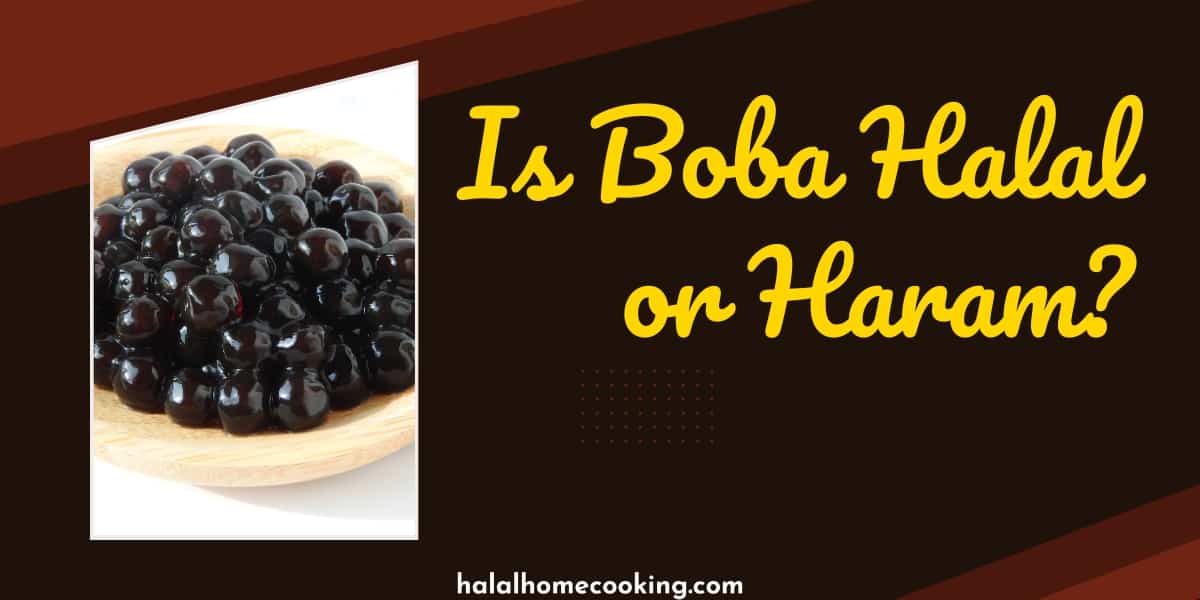Boba, also known as bubble tea, has gained worldwide popularity in recent years. This flavorful beverage is often made by combining milk tea or fruit tea with chewy tapioca pearls (also called boba pearls) or other variations such as popping boba. However, when it comes to determining its halal status, things can get a little complicated.
One key consideration is the ingredients used in making boba. While some components like black tea leaves, sugar, and milk are generally considered permissible for consumption by Muslims, certain ingredients may raise concerns. For instance, gelatin derived from animal sources could potentially be Haram (forbidden). Additionally, condensed milk might contain alcohol or other Haram ingredients.
Turning our attention specifically to tapioca pearls – one of the defining elements of a classic boba drink – these chewy treats are typically made from tapioca starch or flour. The process involves cooking them until they achieve their unique texture. As such, tapioca pearls themselves do not typically pose a problem from a halal perspective.
However, it’s worth noting that some establishments offer flavored versions of these pearls using artificial additives which require further investigation into their permissibility according to Islamic dietary laws.
When seeking out halal bubble tea shops or brands that cater to Muslim consumers specifically watch out for those with reputable Halal certifications endorsing their products and ingredients For example Gong Cha offers Halal-certified drinks while TP Tea makes clear efforts towards verifying Sharia compliance.
Is Boba Halal in Sunni?
Yes, boba is considered halal in Sunni Islam as long as the ingredients used to make it are halal-certified. Boba tea, also known as bubble tea, is a popular drink made with milk or fruit tea and chewy tapioca pearls.
The tapioca pearls are the key ingredient in boba and they are typically made from tapioca starch or flour, which is permissible for consumption in Islam.
Is Boba Halal in Shia?
Boba, also known as bubble tea, can be halal in Shia if it is made with permissible ingredients and follows strict dietary guidelines. For boba to be halal certified, the tapioca pearls must not contain any haram ingredients such as alcohol or gelatin.
The milk used in the boba tea should also be halal and free from any haram ingredient. Halal bubble tea shops ensure that their milk teas are made with halal-certified products and do not use any forbidden components.
Is Boba Halal in Hanafi?
In the Hanafi school of thought, the halal status of boba tea can vary depending on the ingredients used. The main concern is whether or not certain ingredients are permissible according to Islamic dietary laws. Tapioca pearls, which are commonly found in boba tea, are generally considered halal as they are made from tapioca starch.
However, some bubble tea shops may use flavoring syrups that contain alcohol or haram ingredients like gelatin or cookies. Muslim consumers should look for bubble tea shops that offer halal-certified options or use permissible ingredients such as black or green tea leaves, milk without haram additives (such as condensed milk), and sugar flavors like brown sugar or fruit teas. S
Some FAQs whether different types of Boba are Halal or Haram.
Is Bubble Tea Halal?
There is no definitive answer as it depends on the ingredients used and the specific preparation method, so it is recommended to check with the manufacturer or supplier for confirmation.
Is Boba Jelly Halal?
It depends on the ingredients used in making the boba jelly, so it is best to inquire about its halal status from the producer or seller.
Is Crystal Boba Halal?
The halal status of crystal boba may vary depending on its ingredients, therefore checking with the manufacturer or supplier is recommended.
Is Coco Boba Halal?
Since “Coco Boba” can refer to different brands or types of boba, it’s important to verify its halal status with either the manufacturer or supplier.
Is All Boba Halal?
Each brand and type of boba may have different ingredients and production methods, so determining if all bobs are halal requires assessing each one individually.
Is T4 Boba Halal?
The halal status of T4 bobs may differ based on their specific recipes and manufacturing processes; verification from a reliable source such as T4 would be advisable.
Are Boba Balls (Tapioca Pearls) Halal?
Boba balls’ halal status depends on the ingredients used and how they are prepared, so it is recommended to check with the manufacturer or supplier for confirmation.
Is Lady Boba Halal?
The halal status of Lady Boba may vary depending on its ingredients and production methods. It’s best to inquire about its halal certification or ask the manufacturer for clarification.

